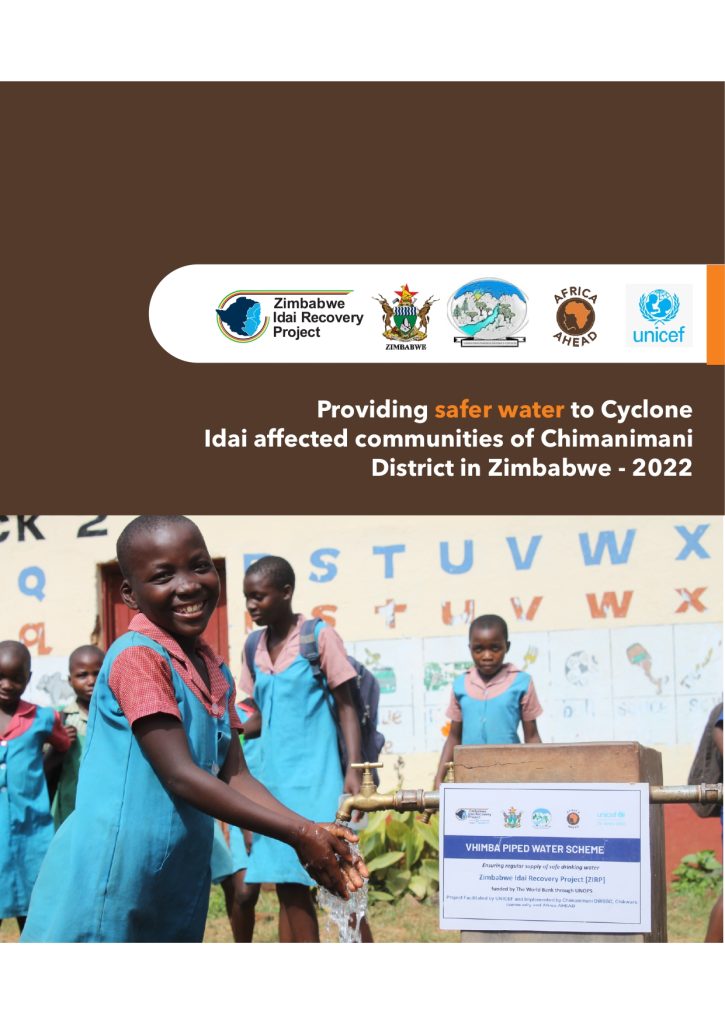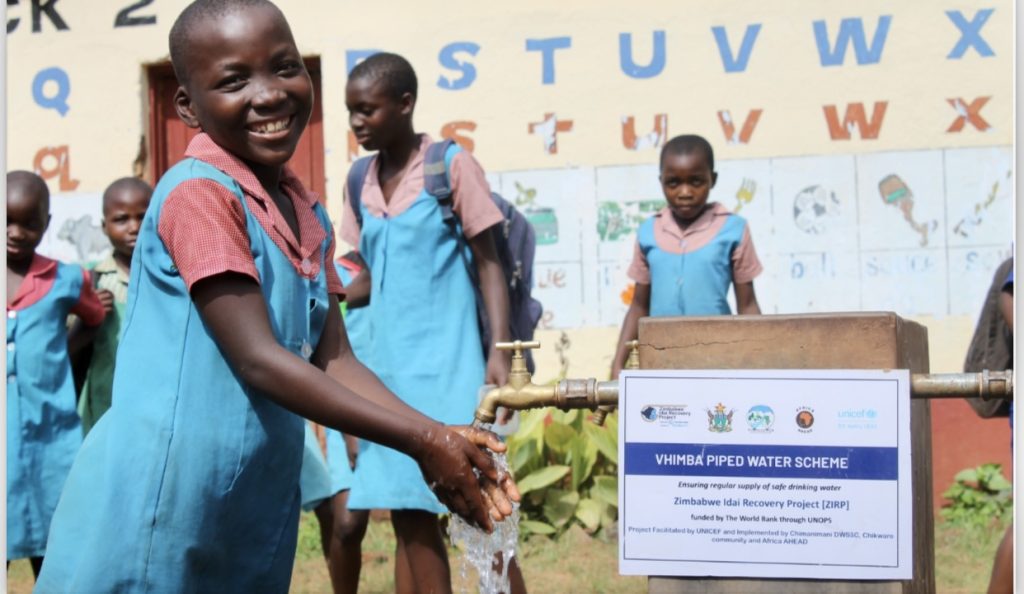The trail of devastation caused by Tropical Cyclone Idai in March 2019 is still visible in the hearts of individuals who were affected by the disaster in eastern Zimbabwe. Mountainous Chimanimani was the worst affected district after a combination of high winds and heavy rain heavily hit Manicaland, Masvingo and sections of Mashonaland East provinces causing significant loss of life, injury, and displacement.The affected districts were already experiencing climate induced droughts and a prolonged economic crisis, thus compromising their capacity to recover from Cyclone Idai.
We express gratitude to the Zimbabwe Idai Recovery Project (ZIRP),a three-year response strategy funded by the World Bank, designed to mitigate the devastation left by Cyclone Idai in some of the most affected communities.The project laid the foundation for regional recovery and longer-term resilience. AfricaAHEAD,through ZIRP ,supported communities in Gutu with improved water access before shifting focus to Chimanimani where, over a period of six months we set up 10 piped water schemes, reaching over 7,500 individuals directly with clean safe water for multiple use.
As Africa AHEAD, we are not new to the district, and we pride ourselves in ushering home grown solutions to community problems. It is my pleasure to acknowledge the Africa AHEAD team for being one of the first organisations to urgently respond to the plight of some of the worst affected families by building houses for 75 families.This was then followed by huge investments in WASH infrastructure at 15 health care facilities.
Under ZIRP,and in partnership with UNICEF,we supported WASH activities in nine wards through interventions that include restoration of boreholes, establishment of solarised and gravity fed piped water schemes,protection of springs,and other ancillary infrastructure using build back better principles where appropriate.
The 10 piped water schemes established by Africa AHEAD have ensured regular supply of safe drinking water, and promoted handwashing and personal hygiene for vulnerable community members of Chimanimani district. In a time where COVID-19 has had a huge effect on families, the provision of water in abundance serves as a conduit to the prevention of the disease whose key preventive measures include hand washing.The reduction in distances travelled by especially women and girls to fetch water means they can devote time to other activities, especially income generating means, thereby contributing to improvements in the lives of the vulnerable.
Strategies to ensure water systems setup up remain functional and users take ownership include the introduction of community-based management systems, involvement of community members and leaders, participatory monitoring of activities, engagement of reputable contractors, respect of local indigenous knowledge systems and supply of durable and quality materials. This way we are sure of the sustainability of our interventions in communities we implement activities.
We are grateful to our partners for their unwavering support in making our work flow smoothly.We worked closely with a number of government departments, NGOs and the private sector just to make sure Chimanimani enjoys clean and safe water.Thank you all for your support.


